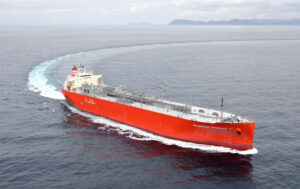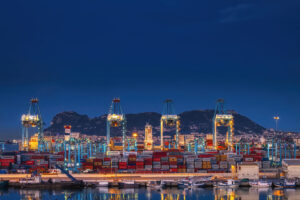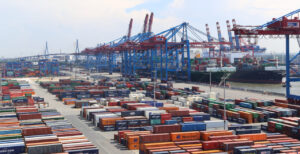The BPA has commented on the IMO’s ongoing discussions at the current Marine Environment Protection Committee (MEPC) meeting, stating that necessary action on GHG shipping emissions must be fully global and not distort or impact competition.
Policy Manager at the BPA Mark Simmonds commented on April 12, 2018, stating that the UK Government must work with ports and industry players to help form and achieve realistic goals on combatting emissions.
He went on to state that, even with concerns of greenhouse gas emissions from the industry, shipping via sea is still the most environmentally friendly method for moving freight.
Read the Port of Los Angeles' “Reduction of Air Emissions through Public-Private Partnerships” technical paper for further discussion on the environmental impact of ports
Simmonds said: “Whilst this is primarily an issue for the shipping industry, ports play an important role in providing bunkering and waste reception facilities.
“Ports will look for a clear and practical strategy that will not disadvantage any particular region or otherwise distort competition.
“Once the MEPC wraps up, it is important that any agreements at the IMO this week are implemented by the UK Government in a pragmatic and sensible manner.
“It is vital that costs do not threaten shipping routes or make certain older ships serving some port markets unviable.
“It is important that we get this right but at the same time remember that moving freight by sea is still by far the most environmentally-friendly way to facilitate global trade – as well as ensuring our economy continues to function and our food and energy supplies are secure.
“In comparison with other transport modes shipping is an efficient and environmentally sustainable option.”









